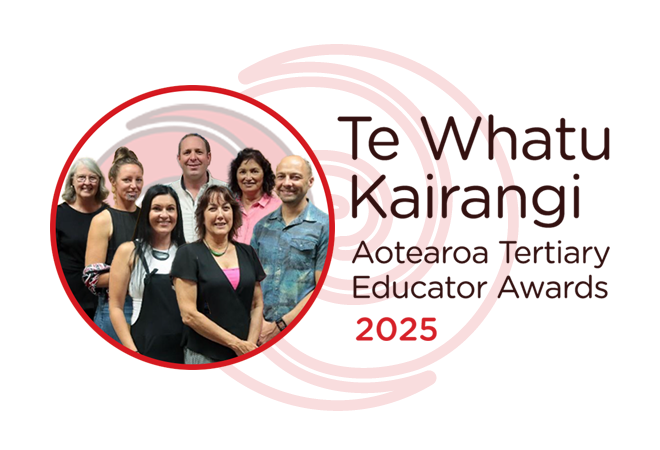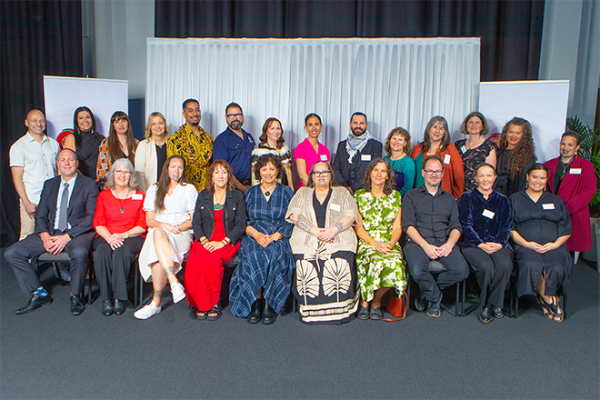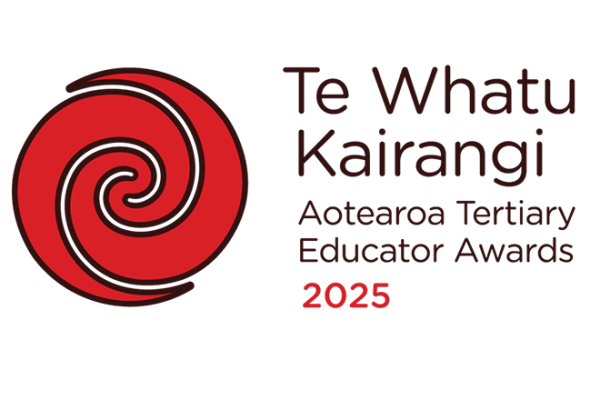Te Atakura Team
Leading system shift in teaching practice
Group Category winner: Achieving diversity and inclusion for improving outcomes for: Māori learners; Pacific learners; neurodiverse learners; and/or learners with disabilities
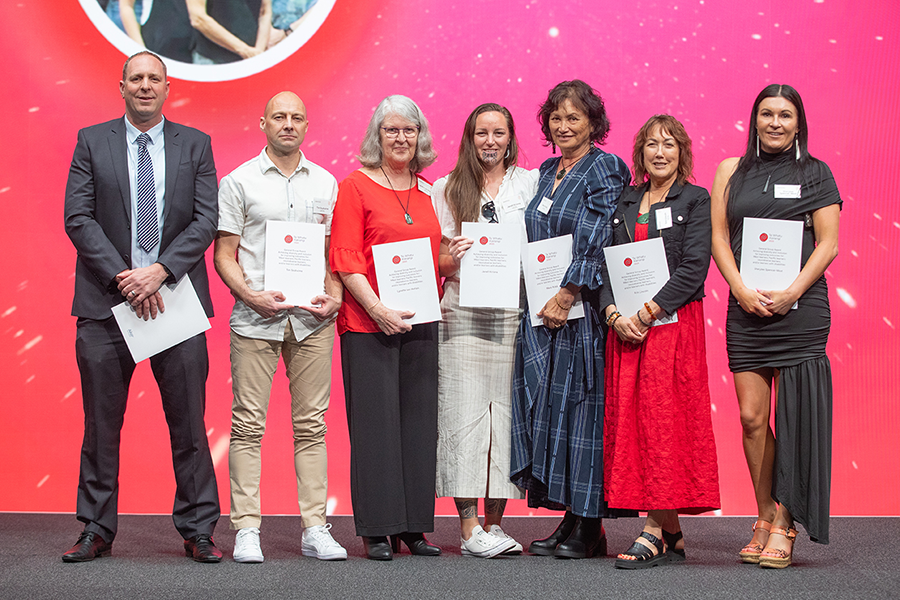
Left to right: Jon Bailey, Tim Seaholme, Lynette van Hutten, Janell Kiriona, Mere Robb, Erin Lincoln and Sherylee Spencer-Most.
The Te Atakura Team at UCOL | Universal College of Learning
- Jon Bailey
- Erin Lincoln
- Janell Kiriona
- Tim Seaholme
- Sherylee Spencer-Most
- Mere Robb
- Lynette van Hutten.
"Te Atakura is an exemplary educational framework due to its culturally grounded, relational approach that transcends conventional pedagogy."
Te Atakura is a culturally responsive relationships-based approach, guided by kaupapa Māori values, working towards achieving ōritetanga (equity) within tertiary education in Aotearoa. It focuses on enabling the organisation to better support experiences and outcomes for ākonga Māori, Indigenous and marginalised, so all can thrive within tertiary education. Te Atakura was developed in 2013 when the Universal College of Learning (UCOL) decided to prioritise a focus on ākonga Māori learning experiences and outcomes, placing ākonga at the centre. Although it started as a six-months’ pilot study, Te Atakura has prospered through four leadership changes, uncertainty and restructures. Now, in 2025, the approach has become embedded and sustained, transforming attitudes and practices among ākonga Māori, stakeholders, the wider community, leadership and kaimahi.
The current Te Atakura team, which consists of six coaches who work within UCOL, have diverse backgrounds in education and many years of experience between them. Culturally, the team includes one Māori kaikōkiri, three Māori coaches (one neurodivergent) and three tangata tiriti. Coaches were chosen because UCOL saw them as high-performing kaiako that had already excelled within their teaching capacity and had achieved significant success with ākonga Māori. The team supports UCOL in its work towards achieving ōritetanga within the organisation; their practice is grounded in culturally responsive pedagogy, which they role model for ākonga, creating a whānau-like context for all.
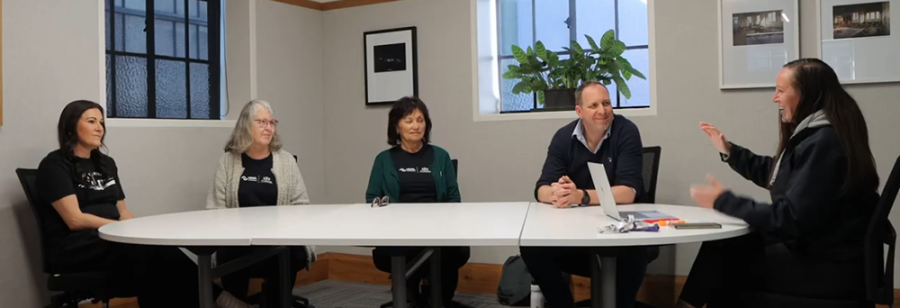
The team’s positive impacts have seen shifts in teacher and leader attitudes, changes in teaching and leadership practices, and increased course completions for ākonga Māori and marginalised ākonga. The team operates in classrooms, the online space, and off-site. Its interactions include collating ākonga voice as part of an observation process and ākonga Māori focus groups. It is actively involved in pōwhiri, mihi whakatau and graduation, building authentic relationships with ākonga, and also with their whānau. Working across the four campuses, the coaches provide pedagogical coaching for kaiako, undertake teaching observations, and deliver Professional Learning for all kaimahi.
Te Atakura recognizes that ākonga do not arrive alone. They are accompanied by their whakapapa, their tūpuna, and the aspirations of their whānau. In acknowledging this, the role of the educator becomes that of a relational kaitiaki, someone who not only facilitates learning but who upholds mana and the potential of every learner. This shift is supported through deliberate acts of culturally responsive teaching which is guided by ongoing observation, feedback, and coaching.
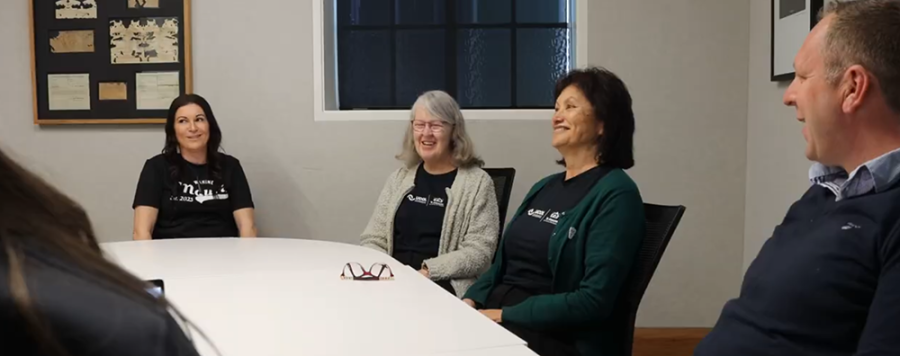
Teachers are not left to interpret cultural responsiveness in isolation; instead, they are enveloped in a learning journey that models and embeds authentic relationship-based practice. The wellbeing and success of ākonga is seen as being inextricably linked to whānau participation and aspirations.
In alignment with Te Tiriti o Waitangi obligations and kaupapa Māori frameworks, such as Te Atakura and He Kākano Rua, Te Atakura practice positions ākonga Māori as capable, culturally grounded, and aspirational. The voices of ākonga are sought at the outset of programme development and throughout the learning journey. Regular hui, wānanga, and feedback loops align with the concept of ako/wānanga, where teaching and learning are reciprocal and relational. The team’s mahi is grounded in a deep commitment to ākonga, ensuring their voices and realities remain at the centre.
Te Atakura coaches observe kaiako while they are teaching and give feedback which allows kaiako to explore patterns of engagement. Through open, respectful, and mana-enhancing dialogue, they uncover what uplifts ākonga — and where unconscious barriers may exist. They co-construct new possibilities for teaching - approaches that affirm identity, connection, and genuine pathways to success. Coaches specifically collate ākonga Māori voice after each classroom observation, to determine the cognitive engagement of the learning for the ākonga. They do this by asking three questions based on John Hatties’ research on formative assessment: “What are you learning about today?”, “How are you going and how do you know?”, and “What do you need to learn next?”. The Te Atakura process has affected a positive shift in teaching practice from 2014-2024 in terms of becoming more culturally responsive and increasing parity for ākonga Māori.
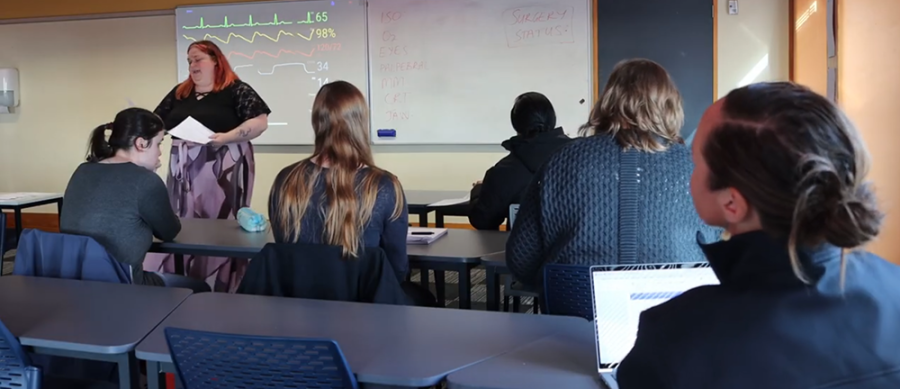
Te Atakura works in collaboration with every level of the institution to ensure the voices of ākonga are heard and systemic change is affected. The team disrupts respectfully through connections and relationships, evidence-informed pedagogical knowledge, role modelling and upholding their values, finding what it takes to truly build and create a whānau-like context. To stay relevant and valued, the Te Atakura team engaged in supervision alongside Professor Veronica Tawhai to create a Model of Practice which guides their continuing effectiveness. This model includes; positionality, whanaungatanga-relationships, whakarongo ki te rongo-active listening, whakamana tangata- acknowledgement, Te whakapuaki- Language and Te haerenga ki te āpōpō. Te Atakura is sustained through visible leadership support, strategic inclusion in planning documents, job descriptions and alignment with organisational equity goals. Within UCOL, 300 teachers have been engaged in over 1300 observations and, in 2024, the Professional Learning Series had over 500 attendees.
Te Atakura also collaborates with other providers within the Te Pūkenga network, enabling it to share the model and achieve wider impact. In 2025, the team presented at the Ako Aotearoa Central Regional Forum and has been accepted to present at the World Indigenous’ Peoples Conference on Education, as well as the International Council for Open and Distance Education World Conference. Te Atakura has been adopted by two Industry Training Organisations (ITO), including BCITO (Building and Construction Industry Training Organisation) and PITO (Primary ITO). BCITO has a trained Te Atakura team, which completed a pilot and is preparing to roll out a full programme. Te Atakura has delivered workshops at Te Hui Matariki 2024 Teaching and Learning Best Practice, Whitireia New Zealand, and WelTec Te Whare Wananga o te Awakairangi.
"The Te Atakura framework’s emphasis on relational pedagogy and community engagement ensures that learning is holistic, culturally sustaining, and aligned with whānau and iwi aspirations."
